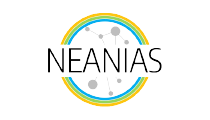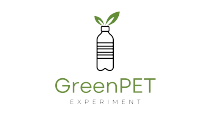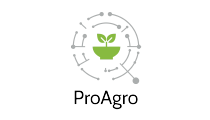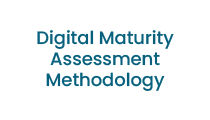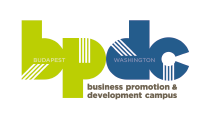Projects
united circles

Projects
united circles
Networked industrial-urban symbiosis value chain demonstrators for biomaterials, C&DW, circular water loops & WWTPs, driven by Hubs 4 Circularity**
Challenge
Europe’s transition to a climate-neutral and circular economy faces persistent barriers—fragmented value chains, inefficient urban-industrial resource flows, and underexploited waste streams (Waste Water Treatment, WWT). Cities and industries produce significant volumes of untapped resources in the form of construction and demolition waste (C&DW), wastewater solids, and used cooking oil (UCO). Despite numerous innovations, these flows remain underutilized due to fragmented value chains, lack of integration, and absence of cross-sectoral collaboration. A shift toward circularity demands large-scale systemic change and coordinated actions.
Project Summary
United Circles aims to implement large-scale circular value chains through Industrial-Urban Symbiosis (IUS). The project brings together 46 partners across 16 countries and one UN body, demonstrating how interconnected ecosystems can upcycle urban and industrial waste streams into valuable materials, products, energy, and clean water.
The project’s main objective is to demonstrate how cities and industries can cooperate through Hubs 4 Circularity (H4Cs) – integrated regional ecosystems that support the transition to zero-waste, low-emission, and resource-positive systems. United Circles focuses on three full-scale demonstrators, along with four replicator hubs and three seed hubs, enabling regional and cross-sector collaboration across Europe and internationally.
The project focuses on three high-impact circular value chain Demonstrators:
- C&DW Upcycling – Ankara Region (Turkey)
Demonstrates how construction and demolition waste (C&DW) can be collected, sorted, and upcycled into new building materials, including: Low-carbon cement, Cement-bonded particle boards, and Polyurethane foam insulation. The process culminates in the construction of a new 2-storey 3D-printed building, fully realised with materials recovered from demolished urban structures.
- Wastewater Resource Recovery – Salamanca Region (Spain)
Demonstrates how a municipal wastewater treatment plant can be converted into an integrated resource recovery centre, generating: Biogas for local energy grids, Upcycled cellulose for industrial use (e.g. paper production), Bio-fertiliser from biosolids, and Clean water for reuse in agriculture. This demonstrator addresses both circular material flow and water loop closure, especially relevant for drought-prone regions.
- UCO to Bioplastics – Novara Region (Italy)
Demonstrates a second-generation biorefinery that upcycles used cooking oil (UCO) and food waste into: Fully biodegradable plastics, Biochar, and High-value additives for industrial and agricultural applications. This is the first use of this biorefinery technology at a near-commercial scale for the production of fossil-free, circular plastic products.
Each demonstrator is embedded in a H4C, serving as a regional governance and innovation platform that integrates stakeholders from industry, municipalities, research, and civil society.
Replicators H4Cs
In addition to the three demonstration hubs, United Circles establishes four H4C replicator hubs:
Southern Transdanubia (Hungary) – focusing on water reuse, municipal waste valorisation, and stakeholder integration.
Eastern Macedonia and Thrace (Greece) – emphasising multi-sector governance and citizen involvement.
Kent (United Kingdom) – focused on urban circular innovation and local policy development.
Johannesburg (South Africa) – targeting water and waste integration in a Global South urban context.
These replicators will assess the technical, financial, and governance feasibility of adopting the solutions demonstrated in the project, and develop business-to-territory plans for local circular innovation, also benefiting from targeted support in stakeholder engagement.
Seed Hubs
To extend project impact and scalability, United Circles engages four Seed Hubs – regions with high potential for future circular economy development. These Seed Hubs include Flanders (Belgium), Normandy (France), Brighton & Hove (UK) and Central Italy.
These regions represent diverse industrial, policy, and urban contexts, providing a testbed for adaptability and transferability of United Circles methodologies. They will participate in knowledge-sharing and capacity-building activities; receive tailored support to build local stakeholder ecosystems and develop roadmaps toward full H4C deployment post-project
Key Objectives
* Deploy three operational Hubs 4 Circularity with interconnected stakeholders and digital decision tools.
* Achieve high circularity across water, waste, and material flows.
* Deliver replicable models, business cases, and policy recommendations.
* Generate validated data on CO₂ reduction, cost-effectiveness, and product performance.
Impact and Outcomes
United Circles will significantly contribute to the European Green Deal and Processes4Planet objectives, enabling regions to:
– Achieve net-zero carbon in cities and industries.
– Drastically reduce raw material demand through circular loops.
– Create inclusive, place-based innovation ecosystems.
The expected outcomes are:
– Three validated TRL7 demonstrators, each with market-ready outputs and environmental performance data.
– Four replicator hubs with feasibility assessments and action plans for upscaling.
– Seven regional H4C governance frameworks integrating digital, financial, and social innovation tools.
– A projected 60%+ reduction in CO₂ emissions across demonstrated value chains.
– Water savings and reuse capacities exceeding 12,000 m³/year in demonstrator regions.
– A foundation for first-of-a-kind circular investment at TRL8 and beyond.
– Enable systemic IUS by addressing technological, regulatory, economic, and societal barriers.
Impact and Outcomes
United Circles will significantly contribute to the European Green Deal and Processes4Planet objectives, enabling regions to:
– Achieve net-zero carbon in cities and industries.
– Drastically reduce raw material demand through circular loops.
– Create inclusive, place-based innovation ecosystems.
The expected outcomes are:
– Three validated TRL7 demonstrators, each with market-ready outputs and environmental performance data.
– Four replicator hubs with feasibility assessments and action plans for upscaling.
– Seven regional H4C governance frameworks integrating digital, financial, and social innovation tools.
– A projected 60%+ reduction in CO₂ emissions across demonstrated value chains.
– Water savings and reuse capacities exceeding 12,000 m³/year in demonstrator regions.
– A foundation for first-of-a-kind circular investment at TRL8 and beyond.
– Enable systemic IUS by addressing technological, regulatory, economic, and societal barriers.
innomine’s role
INNOMINE contributes significantly to Work Package 5 (H4C Replication Activities, Social Innovation, Financing & Sustainability), where it leads several core activities:
– Designing scalable and sustainable replication frameworks for new Hubs 4 Circularity.
– Coordinating IUS network scenarios and stakeholder engagement strategies across Europe.
– Supporting the development of H4C social innovation case studies and financing models that de-risk investment and accelerate deployment of circular infrastructure.
INNOMINE also:
– Supports the development and institutionalisation of the Hungarian H4C in Southern Transdanubia.
– Contributes to replication planning and stakeholder outreach, especially across Central and Eastern Europe.
Let's Work Together!
We are here to help you grow.
Send us a message and let’s change the future.
Contact
(+36) 30 198 2838
11. Széll Kálmán tér, Budapest 1024



